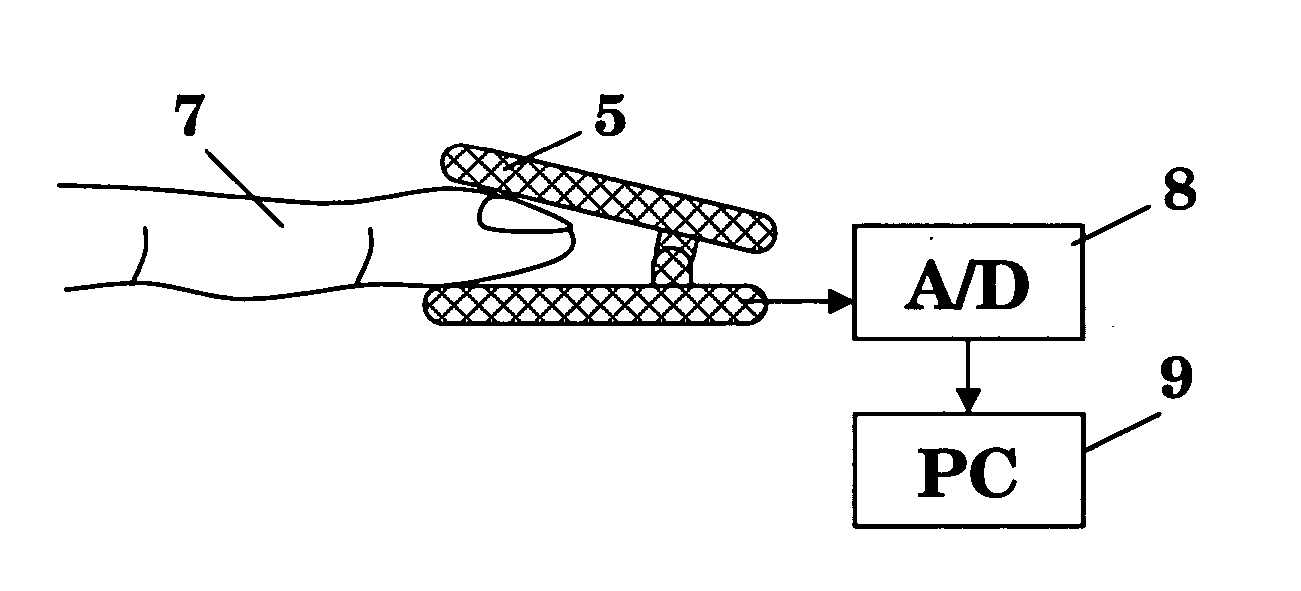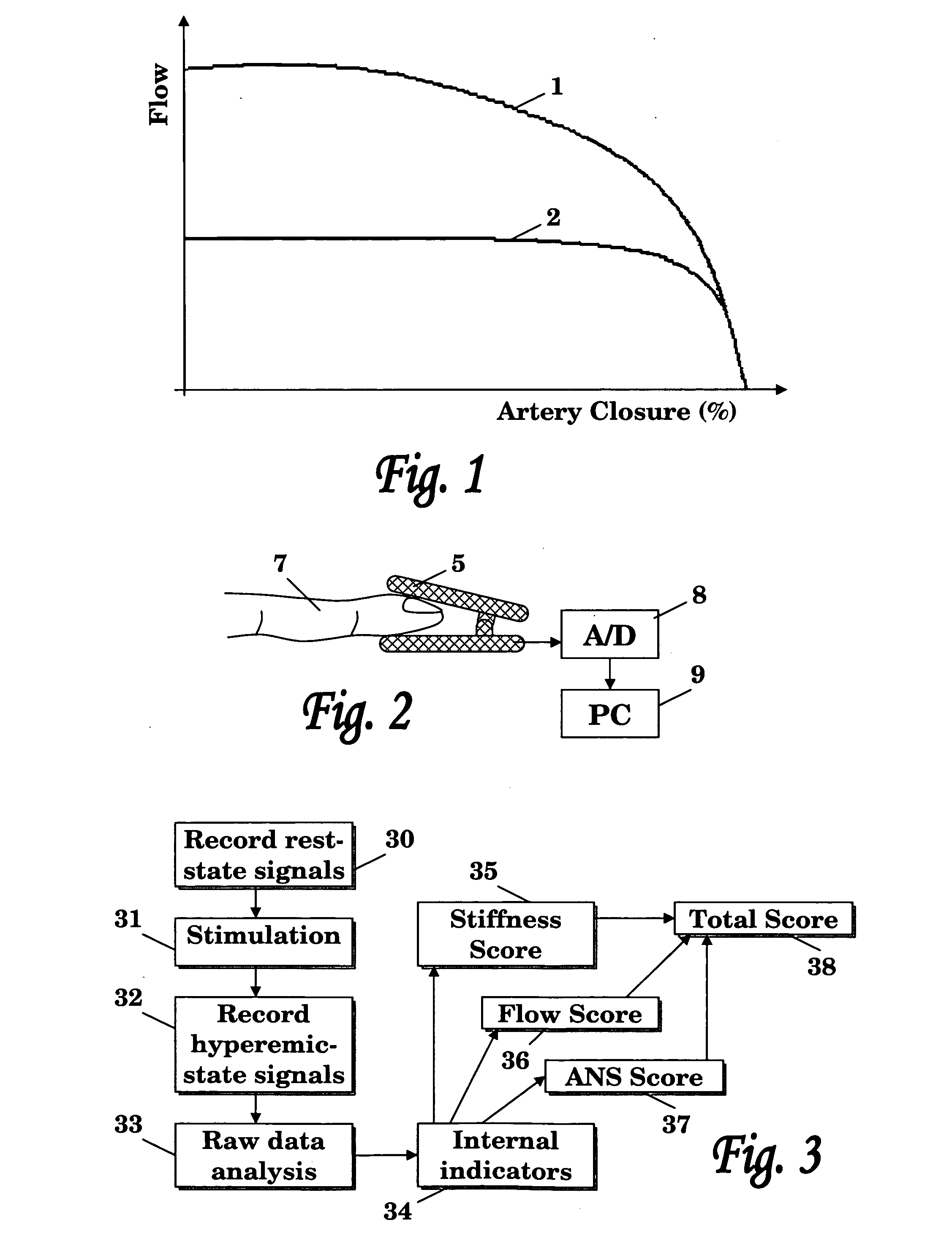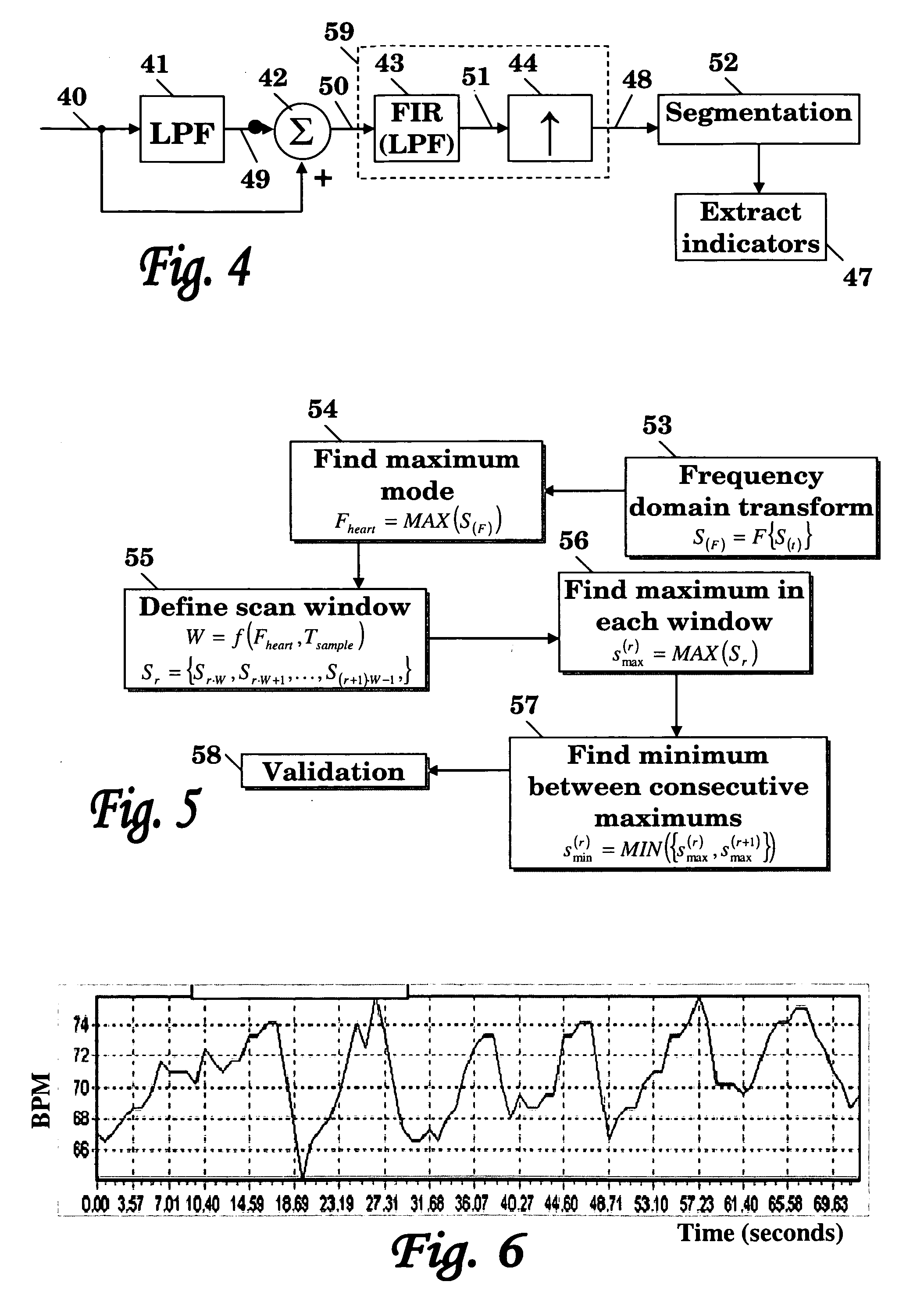Method and system for cardiovascular system diagnosis
a cardiovascular system and system technology, applied in the field of cardiovascular system diagnosis, can solve the problems of poor reproducibility of hrv in patients with chf, burdensome tests, poor cardiovascular system diagnosis, etc., and achieve the effect of monitoring function and/or diagnosing cardiovascular system dysfunction
- Summary
- Abstract
- Description
- Claims
- Application Information
AI Technical Summary
Benefits of technology
Problems solved by technology
Method used
Image
Examples
example 1
[0137]FIGS. 13A to 13C show the results of the test procedure of the invention performed with a patient. In this example the patient had a mild non-ST MI few weeks after having the test. The patient went through a PTCA procedure, which revealed a blocked artery, and underwent a stenting procedure. The PW signal measured during test shown in FIG. 13A shows that the relative amplitude (with respect to the breath-curve) of the PW signals remained almost unchanged during the test, which indicates that the blood system of this patient responded very weakly to the breath control stimulation. FIG. 13B, which show the HRV plot of the measured PW signal, confirms that the patient had a weak response to the excitation performed in the test. This weak response is also reflected in the spectrum of the PW signal depicted in FIG. 13C.
[0138] Table 1 lists the indicators calculated in this test and their diagnostic indication:
TABLE 1IndicatorResultIndicationRPRR11MarginalRPRV - STDEV2.6MarginalR...
example 2
[0139] This example show the results of a test carried out with the same patient 1 day after the stenting procedure. As seen in FIGS. 14A and 14C, the amplitude and spectrum of the measured PW signal reveals significant improvement in the patient's response to the stimulation of the test, but the HRV plot shown in FIG. 14B indicates a relative reduction in the heart rate in response to the stimulation. The calculated indicators are listed in table 2 below.
TABLE 2IndicatorResultIndicationRPRR4Very high riskRPRV - STDEV1.0Very high riskRpNN500%Very high riskIR RMR60%Very good responseAI0.44Very good responseConclusionsMed-High risk for event
Conclusions:
Flow indicators are very strong after stent procedures.
All Pulse rate variability indicators are very low (the MI probably damaged the patient's autonomic nervous system).
example 3
[0140] This example show the results of a test carried out with the same patient 30 days after the event. During this time the patient received anti cholesterol medication (with a statin drug), and reported that he felt very ill. As seen in FIGS. 15A-15C, the PW response is very weak, indicating a possible restenosis.
[0141] Table 3 lists the indicator calculated in this test and their diagnostic indication:
TABLE 3IndicatorResultIndicationRPRR4Very high riskRPRV - STDEV1.6Very high riskRpNN500%Very high riskIR RMR−10%Very high riskAI1.35high riskConclusionVery high risk
Conclusions:
Flow indicators have been regressing - possible restenosis.
All pulse rate variability indicators are still very low.
PUM
 Login to View More
Login to View More Abstract
Description
Claims
Application Information
 Login to View More
Login to View More - R&D
- Intellectual Property
- Life Sciences
- Materials
- Tech Scout
- Unparalleled Data Quality
- Higher Quality Content
- 60% Fewer Hallucinations
Browse by: Latest US Patents, China's latest patents, Technical Efficacy Thesaurus, Application Domain, Technology Topic, Popular Technical Reports.
© 2025 PatSnap. All rights reserved.Legal|Privacy policy|Modern Slavery Act Transparency Statement|Sitemap|About US| Contact US: help@patsnap.com



